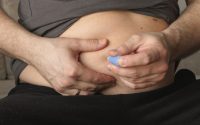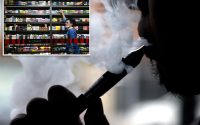WHO advises gay, bisexual men to ‘limit partners’ amid monkeypox
The World Health Organization announced that to mitigate the spread of monkeypox gay and bisexual men should “limit their number of sexual partners.”
“For men who have sex with men, this includes for the moment, reducing your number of sexual partners, reconsidering sex with new partners, and exchanging contact details with any new partners to enable follow up if needed,” Tedros Adhanom Ghebreyesus, the director general of WHO, advised on Wednesday.
According to Dr. Rosamund Lewis, WHO’s monkeypox expert, at least 95% of patients are men who have sex with men.
Although there are exceptions, such as a TikToker known as Halle who couldn’t even get tested.

WHO added in their press briefing that they wanted to avoid what happened in the early days of COVID-19 and mentioned how quickly misinformation can spread on social media.
Their data currently shows more than 18,000 reported cases of monkeypox worldwide, with 25% of them coming from the Americas. The Biden administration is considering declaring monkeypox a public health emergency.
“This is an outbreak that can be stopped if countries, communities and individuals inform themselves, take the risk seriously and take the steps needed to stop transmission and protect vulnerable groups. The best way to do that is to reduce the risk of exposure. That means making safe choices for yourself and others,” Ghebreyesus said, according to CNN.
Monkeypox is primarily spread through skin-to-skin physical contact during sex, but it is not considered a sexually transmitted disease. It can also be transmitted by touching sheets, towels or other objects that a person with monkeypox may have used.

The Centers for Disease Control and Prevention says it is still investigating if the virus can be spread by someone with no symptoms or through semen, vaginal fluids and fecal matter.
It is still advising people to wear a condom, although it will likely not protect against the spread of monkeypox.
A vaccine is available, but in New York City, the rollout to get an appointment has not been smooth and there has been limited supply.
“It’s very important for anyone who has monkeypox to isolate, so that they can protect anyone else living in their household or anyone else they may be in contact with,” Lewis said.
She continued: “Household transmission is how this was first discovered, and household transmission may in some circumstances begin to occur.”


